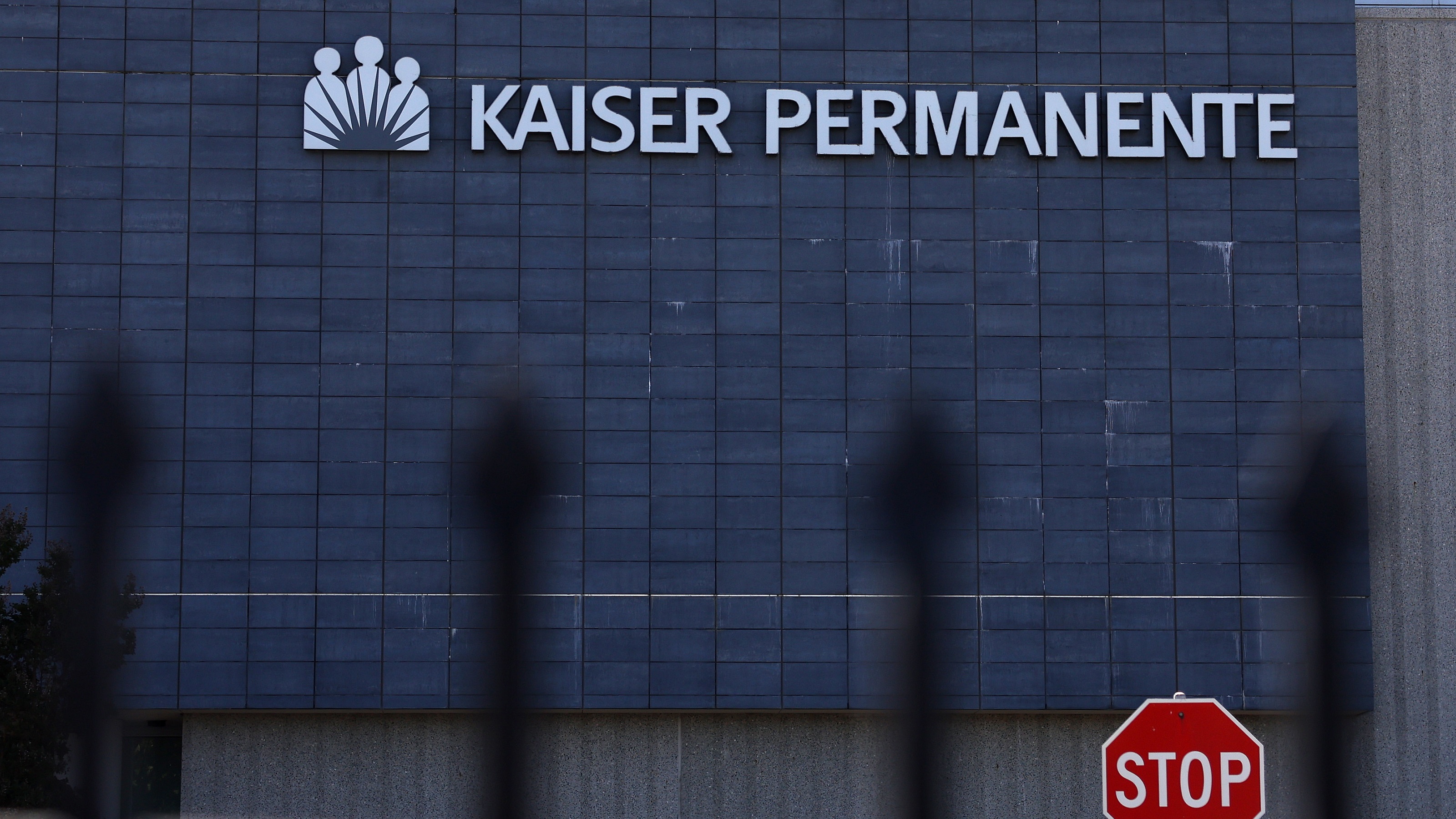Healthcare Union Workers Move Closer to Strike
If Kaiser Permanente and unions don't reach a new deal soon, the largest healthcare strike is set to begin next month in multiple states.

Esther D’Amico

Profit and prosper with the best of Kiplinger's advice on investing, taxes, retirement, personal finance and much more. Delivered daily. Enter your email in the box and click Sign Me Up.
You are now subscribed
Your newsletter sign-up was successful
Want to add more newsletters?

Delivered daily
Kiplinger Today
Profit and prosper with the best of Kiplinger's advice on investing, taxes, retirement, personal finance and much more delivered daily. Smart money moves start here.

Sent five days a week
Kiplinger A Step Ahead
Get practical help to make better financial decisions in your everyday life, from spending to savings on top deals.

Delivered daily
Kiplinger Closing Bell
Get today's biggest financial and investing headlines delivered to your inbox every day the U.S. stock market is open.

Sent twice a week
Kiplinger Adviser Intel
Financial pros across the country share best practices and fresh tactics to preserve and grow your wealth.

Delivered weekly
Kiplinger Tax Tips
Trim your federal and state tax bills with practical tax-planning and tax-cutting strategies.

Sent twice a week
Kiplinger Retirement Tips
Your twice-a-week guide to planning and enjoying a financially secure and richly rewarding retirement

Sent bimonthly.
Kiplinger Adviser Angle
Insights for advisers, wealth managers and other financial professionals.

Sent twice a week
Kiplinger Investing Weekly
Your twice-a-week roundup of promising stocks, funds, companies and industries you should consider, ones you should avoid, and why.

Sent weekly for six weeks
Kiplinger Invest for Retirement
Your step-by-step six-part series on how to invest for retirement, from devising a successful strategy to exactly which investments to choose.
More than 80,000 Kaiser Permanente union workers say they are prepared to walk out if they do not reach an agreement with the healthcare giant before their contract expires on Sept. 30.
The national bargaining team of the Coalition of Kaiser Permanente Unions - which represents workers in California, Colorado, Oregon, Virginia, Washington, and Washington, DC - notified Kaiser on Sept. 22 that it is calling for a three-day strike beginning Oct. 4, according to a statement from the SEIU-United Healthcare Workers West (UHWW), part of the Coalition.
It would be the largest healthcare industry strike in U.S. history, the Coalition said. It would far exceed a walkout by 53,000 University of California healthcare workers in 2018, which currently stands as the largest work stoppage in the industry’s history.
From just $107.88 $24.99 for Kiplinger Personal Finance
Become a smarter, better informed investor. Subscribe from just $107.88 $24.99, plus get up to 4 Special Issues

Sign up for Kiplinger’s Free Newsletters
Profit and prosper with the best of expert advice on investing, taxes, retirement, personal finance and more - straight to your e-mail.
Profit and prosper with the best of expert advice - straight to your e-mail.
It would also be the latest example of labor unrest across the U.S. economy this year. Strikes or threats of strikes so far this year involve unions from various industries including autoworkers, flight attendants, pilots, UPS drivers and writers.
The Coalition is seeking higher wages, bonuses and more staffing among other demands.
If Kaiser “continues to commit unfair labor practices," another longer strike would be called and include the Washington state union whose contract expires on Oct. 31, UHWW said.
“Kaiser executives refuse to acknowledge how much patient care has deteriorated or how much the frontline healthcare workforce and patients are suffering because of the Kaiser short-staffing crisis,” Dave Regan, SEIU-UHWW president, said in a statement.
Plans in place to continue healthcare services
Kaiser declined Kiplinger’s request for comment. The Coalition did not respond to requests for comment.
In a Sept. 15 statement on its website, Kaiser said that unions account for 75% of its workforce. The company said it has made a number of offers including wage increases, a minimum wage starting at $21 an hour, as well as continuation of its existing health benefits and retirement income plans.
Kaiser also said it is disappointed that the union authorized a strike but that it has comprehensive plans in place for continued access to needed healthcare services should a strike occur later this year.
RELATED CONTENT
Profit and prosper with the best of Kiplinger's advice on investing, taxes, retirement, personal finance and much more. Delivered daily. Enter your email in the box and click Sign Me Up.

Joey Solitro is a freelance financial journalist at Kiplinger with more than a decade of experience. A longtime equity analyst, Joey has covered a range of industries for media outlets including The Motley Fool, Seeking Alpha, Market Realist, and TipRanks. Joey holds a bachelor's degree in business administration.
- Esther D’AmicoSenior News Editor
-
 The New Reality for Entertainment
The New Reality for EntertainmentThe Kiplinger Letter The entertainment industry is shifting as movie and TV companies face fierce competition, fight for attention and cope with artificial intelligence.
-
 Stocks Sink With Alphabet, Bitcoin: Stock Market Today
Stocks Sink With Alphabet, Bitcoin: Stock Market TodayA dismal round of jobs data did little to lift sentiment on Thursday.
-
 Betting on Super Bowl 2026? New IRS Tax Changes Could Cost You
Betting on Super Bowl 2026? New IRS Tax Changes Could Cost YouTaxable Income When Super Bowl LX hype fades, some fans may be surprised to learn that sports betting tax rules have shifted.